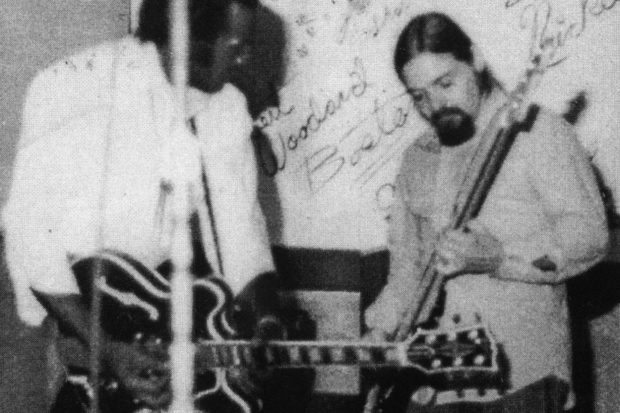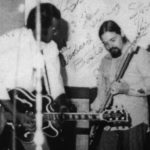

By Boston Woodard
It should be noted that all prisoners involved with the mass hunger strike in California’s security housing units (SHUs) are not the irretrievable miscreants (“gang members”), as described by Jeffrey Beard, secretary of the California Department of Corrections and Rehabilitation (CDCR), in an Aug. 6, 2013, Los Angeles Times op-ed.
Beard’s misleading narrative about what’s going on with the hunger strikers locked within spartan cells in California’s high-powered state prisons should be considered with suspicion.
There may be some “leaders from four of the most violent and influential prison gangs…calling the shots,” as Beard puts it, but his blanket explanation of who the strikers are is a misrepresentation of the facts—an attempt to divert attention from the strikers’ basis for doing so. It’s the hyperextended amounts of time spent in the SHU, psychological torture, ghastly living conditions and the list is long. That is what they are demonstrating about.
According to a lawsuit filed on behalf of the strikers, prisoners spend 22.5 hours a day in windowless, concrete cells, fed through a door slot and no access to vocation/educational programs. There is a list of 30 grievances regarding those conditions inside the SHUs. “California officials have refused to meaningfully negotiate with us over our reasonable demands” four prisoners told the Los Angeles Times through their lawyers.
The Prisoner’s Hunger Strike Solidarity (PHSS) coalition was formed in 2011 to support the thousands of prisoners in California who joined a peaceful hunger strike to draw attention to the torturous conditions of confinement that they have been subjected to for decades. According to the PHSS organizers, “The hunger strike was called for by a group of men who have been held in extreme isolation in the security housing unit of California’s notorious Pelican Bay State Prison for decades.”
It began with prisoners concerned about the long history of hostilities between racial and group conflicts among one another. PHSS representatives said in a press release that “in recognition of the urgent need to set aside these longstanding disputes to create statewide unity, the men of Pelican Bay have issued an agreement to end hostilities within California prisons.” The Agreement to End Hostilities can be seen at http://prisonerhungerstrikesolidarity.wordpress.com/agreement-to-end-hostilities/.
SHU detainees are demanding (in part) shorter SHU terms, more access to the law library, the ability to purchase more hygiene products and to stop being disciplined for speaking with other prisoners. Beard failed to mention any of this in his op-ed.
“I don’t think it helps anything to do this,” Beard told the Associated Press. “Much of what they’re asking for is being done. It is just not being done fast enough for them. The hunger strike actually interferes with the process.” These words ring hollow to those prisoners who continue to be beleaguered by the ongoing maltreatment in SHUs.
In Pelican Bay State Prison, the supermax prison near the Oregon border, prisoners are again striking to protest the ongoing policy that holds prisoners in isolation indefinitely. This latest strike is a continuance of the demands listed by a hunger strike two years ago. Those horrid conditions still exist according to the hunger strikers. According to Claude Marks, a spokesperson for the PHSS, “prisoners want an earlier way out of the isolation program at Pelican Bay.”
As of 2011, the lawsuit lists, “78 inmates had been held in the SHU for more than 20 years.” A judge in Oakland has refused to dismiss the suit, which could go to trial on claims of cruel and unusual punishment.
According to Beard’s op-ed, “Gang leaders are responsible for five murders, 35 violent assaults, including stabbings, and they have racked up more than two dozen violations for possession of weapons and other contraband.”
It’s easy to use these alleged incidents to instill skepticism and doubt about the demands requested by the prisoner/strikers. There was no evidence presented by Beard connecting any of these incidences to anyone involved with the hunger strike or that the assault even happened in an SHU.
In fact, many of the striking SHU prisoners say most of them have never been accused of gang-related conduct behind bars and instead have been classified as gang “associates” based on such evidence as an old tattoo, an exchange of greetings with a gang member or the word of an undisclosed “confidential informant.”
This latest hunger strike was orchestrated by several dozen prisoners at the supermax Pelican Bay and High Desert state prisons and commenced on July 1, 2013. Those prisoners are demonstrating against the horrendous living conditions that continue to subsist in California’s SHUs.
Beard said he is “concerned about the toll this hunger strike is taking on my staff, the inmates and their families.” He obviously has not had a conversation with the family members who have protested outside prison walls in support of their loved ones in SHUs.
Beard’s claim of prisoners “fighting” each other in SHUs is confusing. To buttress his claims of “threats being used to coerce prisoners into the hunger strike,” he speaks of clashes between SHU prisoners. He failed to mention that the majority of SHU prisoners are single celled, without access to human contact, so it’s not clear what fighting he’s referring to.
“Brutal killers should not he glorified,” Beard told the Los Angeles Times. As for his claims that “this hunger strike is dangerous, disruptive and needs to end,” in his capacity as the CDCR leader, Beard can end the social deprivation, extensive SHU terms, lack of vocational and educational opportunities, and many other malevolent policies used to persecute SHU prisoners. Glorification is not what SHU prisoners want. It is humane treatment that they are requesting.
Many SHU detainees are frustrated after decades of isolation under sham circumstances. One prisoner said that Beard is a “flip-flopper” whose op-ed about the hunger strike should be disregarded as “raw hooey.” It’s distressing that under already austere inhumane circumstances, state prisoners have to starve themselves in an attempt to illuminate their abysmal living environment.
 In 2012, the segregation criteria changed when the CDCR announced that it would “reevaluate every prisoner already isolated.” According to the Los Angeles Times, 208 prisoners were moved back into the general population after reviewing 382 case files.
In 2012, the segregation criteria changed when the CDCR announced that it would “reevaluate every prisoner already isolated.” According to the Los Angeles Times, 208 prisoners were moved back into the general population after reviewing 382 case files.
CDCR officials said that they are in the process of reviewing approximately 7,800-plus prisoners who are in segregation at this time, including 1,000-plus at Pelican Bay. The leaders of the strike are said to be at both Pelican Bay and High Desert prisons.
If Beard is really concerned about his “staff and prisoners’ families caught up in the hunger strike,” a good place to start would be to cease referring to all SHU detainees as “brutal killers” and “violent” gang members. Many SHU prisoners have been caught up in the CDCR policy morass that unjustly associates them with groups they are not connected to.
You only have to look at the narrative and facts of the hunger strike to understand that Beard is politicking with the lives of those men locked in administrative segregation limbo. Beard is attempting to vilify the strikers by twisting the facts and ignoring the legitimate reasons for the hunger strike. He is attempting to remove this latest spotlight that is illuminating the ugly truth going on in California’s supermax SHUs.
If there truly were nothing to hide, Beard would allow more free world media/journalists into California’s 33 prisons—including SHUs—so the public could be given independent reports on what’s really occurring within those spartan cells where the struggle for humane treatment continues.
For more information on the hunger strike and California’s state prison SHUs, visit http://prisonerhungerstrikesolidarity.wordpress.com.
*****
Boston Woodard is a prisoner/journalist (and ex administrative segregation occupant) who writes for the Community Alliance. He is the author of Inside the Broken California Prison System, which is available at www.Amazon.com, www.humblepress.com and www.fresnoalliance.com. Learn more at www.brokencaliforniaprison.com. Contact Boston at Boston Woodard, B-88207, 2NB-101, S.Q.S.P., San Quentin, CA 94974.
